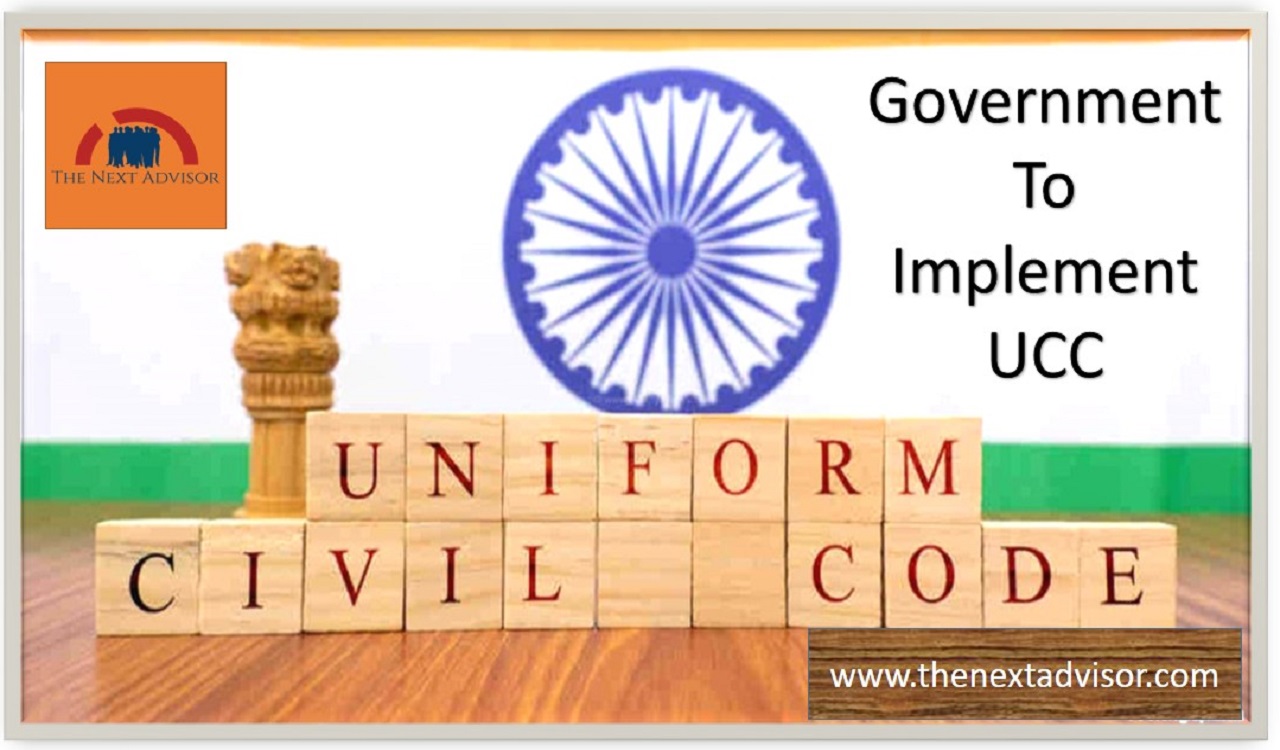Government To Implement UCC
Hello Friends, let’s see the detailed information about Government To Implement UCC.
Uniform civil code bill tabled in Rajya Sabha Amid uproar!
BJP member moves private member bill on uniform civil code in Rajya Sabha, draws stiff resistance from the opposition. Amid protests by the opposition, the private member’s bill on uniform civil code was introduced in the Rajya Sabha on Friday. The bill was introduced by BJP member kirodi Lal Meena. The uniform civil code in India bill, 2020 was introduced in the upper house amid protests from opposition parties. BJP MP kirodi lal Meena moved for leave to introduce the bill to provide for the constitution of the national inspection and investigation committee for the preparation of a uniform civil code and its implementation throughout India and matters connected therewith during the private member’s business.
The winter session of the parliament began on December 7 and will have 17 working days. The government plans to introduce a total of 16 new bills during the session according to the notified schedules. The bill’ introduced by Meena in the upper House, seeks to formulate a panel to prepare a UCC. Meena introduced the bill to implement a national inspection and probe committee to prepare a uniform civil code. What is a uniform civil code – The uniform code calls for the formulation of one law for India, which would apply to all religious communities in matters such as marriage, divorce, inheritance, and adoption. The code comes under the endeavor to secure a Uniform civil code for the citizens throughout the territory of India.
Dr. B.R Ambedkar –
If the president thinks God is a mentor and unless he takes an oath in the name of God he will not be true to the duties he assumes, I think we ought to give him the liberty to swear in the name of God. If there is another person with whom God is not his mentor, we ought to give him the liberty to affirm and carry on the duties.
Importance of Article 44 –
The objective of Article 44 of the directive principles in the Indian constitution was to address the discrimination against vulnerable groups and harmonize diverse cultural groups across the country. Dr. B.R. Ambedkar, while formulating the constitution had said that a UCC is desirable but for the moment it should remain voluntary, and thus Article 35 of the draft constitution of India is Article 44. It was incorporated in the constitution as an aspect that would be fulfilled when the nation would be ready to accept it and the social acceptance of the UCC could be made.
Origin of UCC –
The origin of the UCC dates back to colonial India when the British government submitted its report in 1835 stressing the need for uniformity in the codification of Indian law relating to crimes, evidence, and contracts, specifically recommending the personal laws of Hindus and Muslims be kept outside such codification. The draft of the Rau Committee report was submitted to a select committee chaired by B.R. Ambedkar that came up for discussion in 1951 after the adoption of the constitution. While discussions continued, the Hindu code Bill lapsed and was resubmitted in 1952.
The bill was then adopted in 1956 as the Hindu Succession Act to amend and codify the law relating to intestate or unwilled succession, among Hindus, Buddhists, etc. The Act reformed the Hindu personal law and gave women greater property rights, and ownership. It gave women property rights in their father’s estate. What are personal laws? Laws that apply to a certain group of people based on their religion, caste, faith, and belief are made after due consideration of customs and religious texts.
What will the uniform civil code do?
The UCC aims to protect vulnerable sections as envisaged.
Why the opposition?
Shah Bano case-the personal law in India required the husband to only provide maintenance for the iddat period after divorce, the Indian Express reported. The Supreme Court directed that Shah Bano be provided with living expenses. But, The Supreme Court had directed the Parliament to make law related to the Uniform Civil Code,”. Article 25 guarantees the autonomy of every religious organization. They are entitled to maintain their unique culture under Article 29.
The UCC is likely to bring several changes to Muslim personal law, including the abolition of polygamy practices. The Muslim personal law application Act was passed in 1937 to formulate an Islamic law code for Indian Muslims. It is stated that “One nation, one law” cannot be applied to the unique personal laws of different communities.
So these was the details about the Government To Implement UCC.

























